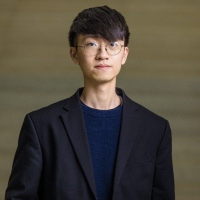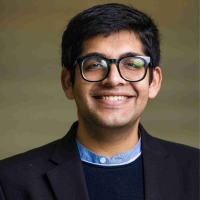
The Oxford Computational Political Science Group (OCPSG) is a non-partisan research initiative supported by the Department of Politics and International Relations (DPIR) at Oxford, we are dedicated to advancing the study and application of computational methods in political science. By offering a collaborative and interdisciplinary environment that blends political science with computational techniques, OCPSG empowers students and researchers to explore innovative solutions to complex political questions.
Research Programme
Research Programme:
OCPSG aims to transform Oxford into a research hub for computational political science by fostering interdisciplinary collaboration and offering first-hand research opportunities. Our Research Programme works on replications of existing research, visualizations of key political science topics, critiques of methodologies or computational method applications of existing research, and also original research projects.
Our Research Programme features students and young researchers holding degrees from or currently studying at Oxford (Department of Politics and International Relations, Oxford Internet Institute, Oxford School of Global and Area Studies, School of Geography and the Environment) or in other leading universities, such as Cambridge, LSE, UCL, Edinburgh, Essex, Yale, UC Berkeley, UC San Diego, HKU, and CUHK. Their backgrounds range from political science to international relations, geography, public health, biology, history, Chinese studies, engineering, sociology, philosophy, economics, and data science.
Projects
Project 1, led by Thomas Brailey, focuses on developing a fine-grained geospatial measure of coercive state capacity. It combines geolocated survey data, geospatial data, and road data. Using this measure of military, police, and security apparatus reach, this project investigates the relationship between state capacity and various outcomes like attitudes toward violence and instances of private violence.
Project 2, led by Calvin Cheng, focuses on addressing key gaps in current research on the moral contagion effect. It aims to test this effect within the context of online information diffusion. It focuses on developing automated methods to measure morality in textual data and investigating how moral content spreads and influences behaviour on social media, using innovative causal research designs to account for confounding factors.
- Project 3, led by Zihao Zhang, focuses on working on mapping the political communication landscape in simplified Chinese on foreign platforms. It focuses on discovering ideological categories in politics-related posts and classifying key opinion leaders (KOLs) based on their posting contents using natural language processing techniques and mapping the information networks of KOLs based on common followers using social network analysis.
Events and Workshops
OCPSG also hopes to train the next generation of computational political scientists by offering research opportunities, academic events, skill training workshops, and peer-learning initiatives, addressing the shortage of quantitatively skilled graduates.
Previously, we hosted a speaker event 'Generative AI for Predictive and Causal Inference' featuring Professor Kosuke Imai from the Department of Government and the Department of Statistics at Harvard University. We also ran a ‘Synthetic Agents for Social Science’ and ‘GitHub and Reproducibility’ workshop taught by our doctoral researchers.
We are planning a sustained workshop series and expanding the coverage of topics. If you are interested in volunteering to be an instructor for a skill training workshop, please do not hesitate to reach out to us. You do not necessarily have to be based at Oxford as we hope to promote cross-university and international collaboration.

OCPSG aims to illuminate interdisciplinary pathways for students to leverage data and computational tools, applying actionable insights to real-world policy problems and making a positive impact beyond academia.
Previously, we held an industrial event featuring start-ups working on using AI tools to address refugee integration issues. We are also planning to organise policy hackathons to bring research training in computational methods and tools in a more applied setting where participants can explore how to address real-life policy issues.
In addition, we aim to launch more initiatives like conferences and summits to promote the exchanges of perspectives across disciplines and universities.

Policy Engagement
With an ambition to make an impact on real-life public issues, OCPSG has actively engaged in policy research. Together with our partner organisation Europinion, we were recently invited to speak at Europe House to the European Parliament's Special Committee on the European Democracy Shield Mission to the United Kingdom about disinformation and media literacy. We are planning to perform further data-intensive research to assess manipulation resistance, trust dynamics, and civic confidence.

Contact
General enquiries: ocpsg@politics.ox.ac.uk.
Bosco Hung: bosco.hung@politics.ox.ac.uk
Nachiket Midha: nachiket.midha@politics.ox.ac.uk
Join our mailing list by filling out this simple form.
Feel free to follow our Instagram and LinkedIn pages for more information.





 t Midha
t Midha